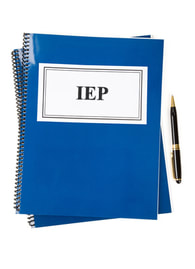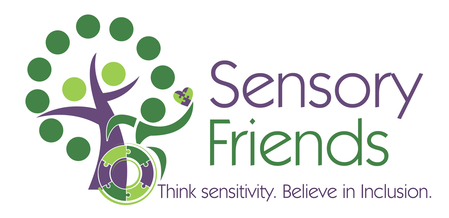
· When you’re deciding on meeting dates and times, if needed, be sure to explain that you wish to take a little extra time to ask questions. Explain that you understand how busy attendees might be, but you would appreciate that the IEP meeting take place when everyone is not pressed for time during the meeting.
· If this isn’t your first IEP meeting, be sure to review the most recent one written. Make note of any goals that weren’t met. It may mean new strategies are needed, or that the goal wasn’t realistic.
· Make a list of questions prior to the meeting – especially if you have questions about certain services being provided or strategies that are currently being used.
· Write your own IEP before the scheduled Meeting. Click here for a sample template that I use. I update it every year. Mine is about eight pages long, as Richie uses four out of the five domains. Under each domain, I list the skills he’s mastered at home, I list the struggles we've witnessed (and strategies we use), and finally, I list my concerns in the order of which I prefer they be addressed. I make copies for all meeting members (I’m sure your team will be willing to make copies for you if you ask them). The team is always so grateful that I come prepared.
· Please be on time and ready to get started.
· If you can, it’s always appreciated if you can bring a sweet treat (cookies from the dollar general store will do). Please note this is not an expectation.
· Typically, the LEA (Local Education Agency) Representative may lead the meeting with introductions of all attendees and their roles. If this doesn’t happen, it’s perfectly okay for you to request the meeting begin with introductions.
· Don’t be alarmed if the team has an IEP draft ready. It saves time to have a draft prepared, and it will be edited during your scheduled meeting.
· Please bring a pad and paper for note taking. There is no way I would remember everything that was discussed, I take notes.
· Please ask questions if you don’t understand something. There is a lot of jargon, and no one knows the meanings of all acronyms, terms, and phrases. I have been known to politely interrupt a discussion to ask what something means. I’ve also written the word or phrase of something I didn't understand and asked what it meant after the speaker finished presenting his/her information.
· If you disagree with something, please speak up and express your concerns. If it feels like you’re not going to meet an agreement that day, and the team is insisting with their strategy, service or change - it’s okay, don’t panic. Explain that you would like to re-visit this at another time (this also gives you time to further research the topic).
· Please don’t refuse to sign the IEP. It does not mean you disagree with the contents of the document. Signing the IEP only confirms attendance. If you disagree with something, simply print in your own words next to your name that you disagree with a particular statement or service, and would like to review this issue at a later date. Signing the IEP confirms your attendance, but now you have also officially documented your concern.
· At the end of the meeting, a copy of the finalized IEP is given to you.
I have had many meaningful discussions with my son’s IEP team about what’s working and what isn’t. We learn about the things that Richie is doing at school and at home, and we are always surprised at how often there are differences in his behaviors and methods for task completion. We have not always agreed, but so far, we have been able to come to fair conclusions in a respectful manner.
Please let me know if this article helped you! I welcome all comments and suggestions.
© 2015 Sensory Friends

 RSS Feed
RSS Feed